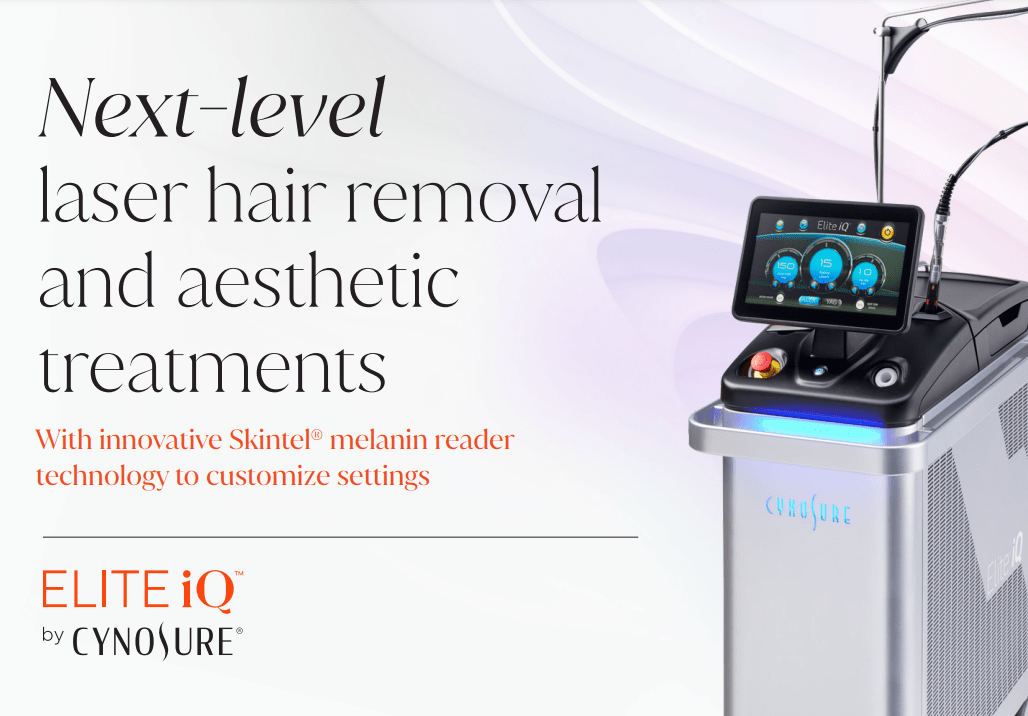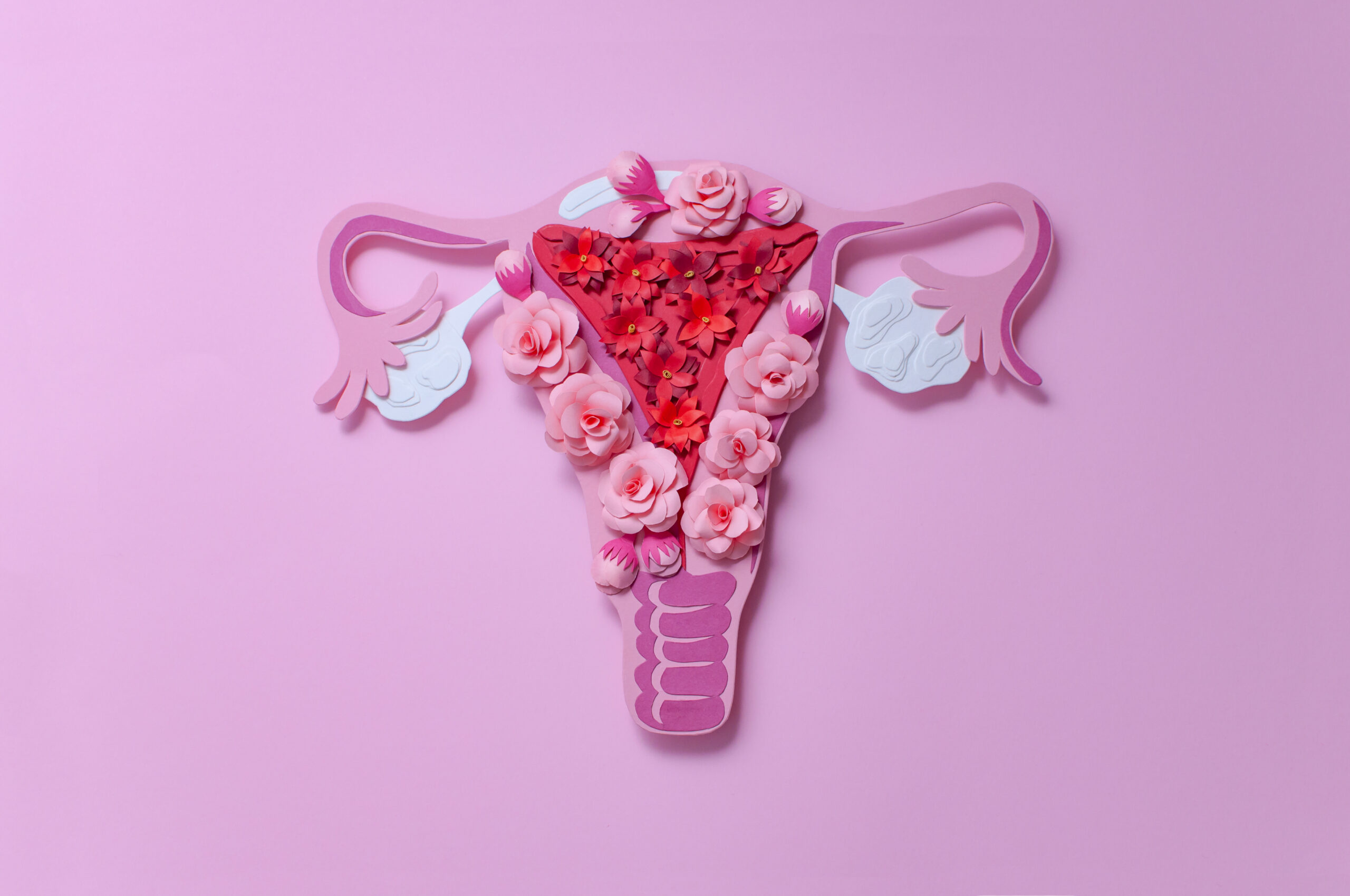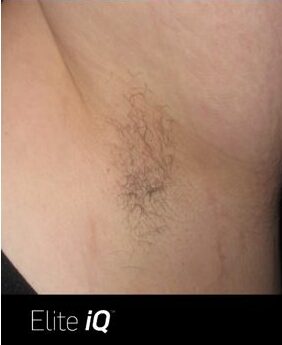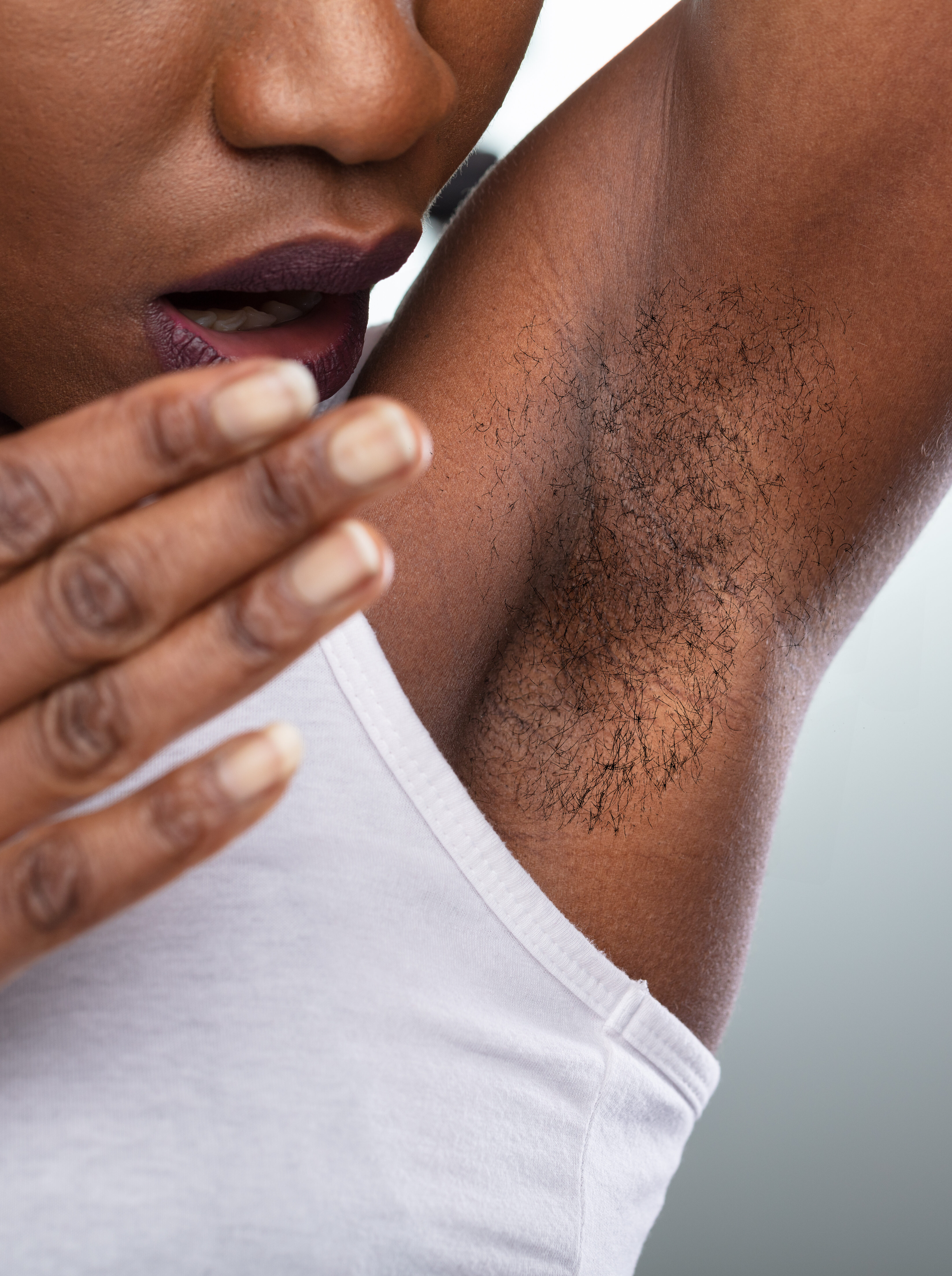At a Glance
EXPECTED RESULTS
Reduction in hair growth
TREATMENT TIME
Varies depending on area
DOWNTIME
Minimal to none
LONGEVITY
Ongoing
ANAESTHESIA
None required
RECOVERY
Immediate
REQUIRED
6-10 treatments (some may need more)
QUICKLY
Fast Treatment
COST
Great Value-for-money
AFTERCARE
Peace of mind
Are you struggling with the challenges of Polycystic Ovary Syndrome (PCOS)? At Skin Cosmetics London, we understand the particular struggles that come with this condition, especially the issue of excessive, unwanted hair growth, known as hirsutism. Our cutting-edge laser hair removal treatments could be the solution you’re seeking.
PCOS, a hormonal disorder, can often lead to increased hair growth due to an excess of androgens, or male hormones. This can result in thicker, darker hair in areas typically associated with male hair patterns, like the face, back, and chest. Understandably, this can take a significant toll on your self-esteem and quality of life.
Laser hair removal has proven to be a highly effective and long-term solution for many people with PCOS. This process works by targeting the melanin in hair follicles with concentrated light, which is converted to heat. This heat then damages the follicle, inhibiting future hair growth without affecting the surrounding skin. The end result is smoother, hair-free skin that can last for months, even years, depending on individual hair growth cycles.
At Skin Cosmetics London, we use state-of-the-art laser technology, handled by our expertly trained clinicians. We personalize each treatment according to your specific skin type and hair characteristics, ensuring the best possible results. It’s important to note that multiple sessions are typically required to catch the hair in its different growth phases.
Embarking on a journey of laser hair removal can provide immense relief for those dealing with PCOS-related hirsutism. Beyond the physical benefits, it can significantly improve emotional well-being, freeing you from the routine and discomfort of constant shaving, plucking, or waxing.
We know that dealing with PCOS can be challenging, but we’re here to offer support and solutions. Our friendly and compassionate team will guide you through every step of the process, answering all your questions and addressing any concerns. We provide a safe, welcoming environment where your comfort is our top priority.
At Skin Cosmetics London, our aim is to help you reclaim control over your body and boost your self-confidence. We believe everyone deserves to feel beautiful and comfortable in their own skin.
Ready to begin your journey towards smoother, hair-free skin? Book a consultation with us today and let us help you manage your PCOS in a way that best suits your lifestyle. Skin Cosmetics London – where science meets beauty, and you meet a new level of self-confidence.


BOOK FREE CONSULTATION
Book your Free, No-Obligation Consultation or Skin Analysis





What is skin health?
Odds are you’ve heard of the term skin care, but there’s way more to healthy skin than what’s on the surface. Just like overall wellness, skin health isn’t determined by just one or two factors – it’s the combination of things you do every day, from what you put on your skin to what you put in your body.
- 90% of skin damage is caused by sun exposure
- 81% of people have experienced a skin problem
- The body produces 1% less collagen each year of life

Why is skin health so important?
Your skin is one of the largest organs in your body – and definitely the most exposed. There are tons of factors that can lead to damaged skin, which can eventually take a toll on your emotional health. Rather than covering up those imperfections, we believe that focusing on the underlying causes is the best way to get skin that truly glows. And that holistic approach to skin health can lead to a happier, healthier you.




STEPS
Treatment Step by Step
Initial Consultation
- Assessment: During the first visit, a specialist will assess your skin type, hair color, and density, and discuss your medical history, including your PCOS diagnosis.
- Patch Test: A small patch test may be performed to check how your skin reacts to the laser and to determine the most effective settings.
Pre-Treatment Preparation
- Avoid Sun Exposure: It’s recommended to avoid sun exposure and tanning for at least two weeks before the treatment to reduce the risk of skin irritation or burns.
- Shave the Area: You will be asked to shave the treatment area a day or two before the session to ensure the laser targets the hair follicle and not the hair above the skin.
During the Treatment
- Clean and Prep the Skin: The treatment area will be cleansed to remove any oils, dirt, or makeup.
- Protective Gear: You and the specialist will wear protective eyewear to shield your eyes from the laser light.
- Apply Cooling Gel: A cooling gel or a cooling device may be used to protect the outer layers of your skin and enhance comfort during the procedure.
- Laser Application: The specialist will use a handheld laser device to target the hair follicles. The laser emits pulses of light that are absorbed by the pigment in the hair, damaging the follicles and inhibiting future growth.
- Sensation: You may feel a slight stinging or snapping sensation as the laser targets the hair follicles. Most modern lasers have built-in cooling mechanisms to minimize discomfort.
Post-Treatment Care
- Cooling and Soothing: After the session, a soothing cream or aloe vera gel may be applied to calm the skin.
- Avoid Sun Exposure: It’s important to avoid direct sun exposure and use sunscreen to protect the treated area for at least a week post-treatment.
- Avoid Heat: Refrain from hot baths, saunas, and strenuous exercise for a couple of days to reduce the risk of irritation.
Follow-Up and Maintenance
- Multiple Sessions: Because hair grows in cycles, multiple sessions are required to achieve optimal results. Typically, 6 to 8 sessions spaced 4 to 6 weeks apart are recommended.
- Monitoring Progress: The specialist will monitor your progress and make any necessary adjustments to the treatment plan based on how your skin and hair respond.
- Maintenance Treatments: After the initial series, maintenance treatments may be needed every 6 to 12 months to manage any new hair growth due to hormonal fluctuations.
Summary
Laser hair removal for PCOS involves a thorough initial consultation, pre-treatment preparation, precise laser application, and careful post-treatment care. Multiple sessions are required to target hair effectively during its growth cycle, with maintenance treatments to ensure long-lasting results. By following these steps, individuals with PCOS can achieve significant and sustained reduction in unwanted hair growth.










CLEAR YOUR DOUBTS
Frequently Asked Questions
How does Laser Hair Removal help with PCOS?
Polycystic Ovary Syndrome (PCOS) often leads to unwanted hair growth due to hormonal imbalances, specifically an increase in androgens, which can cause excessive hair growth on the face, chest, and other areas. Laser hair removal offers a highly effective solution for managing this condition. Here’s how it helps:
1. Permanent Hair Reduction
- Targeting Hair Follicles: Laser hair removal targets hair follicles with concentrated light energy. This energy is absorbed by the pigment in the hair, damaging the follicle and inhibiting future hair growth.
- Reduction Over Time: With multiple treatments, there is a significant reduction in hair growth, leading to smoother skin and less frequent need for other hair removal methods.
2. Managing Hirsutism
- Excessive Hair Growth: Hirsutism, or excessive hair growth, is a common symptom of PCOS. Laser hair removal is particularly effective in treating this condition by reducing the density and thickness of unwanted hair.
- Improving Appearance: Regular sessions can greatly improve the appearance of skin by reducing visible hair, thereby boosting confidence and self-esteem.
3. Long-Lasting Results
- Fewer Touch-Ups: Compared to traditional hair removal methods like shaving, waxing, or plucking, laser hair removal provides long-lasting results, reducing the need for frequent maintenance.
- Maintenance Sessions: After the initial series of treatments, occasional maintenance sessions are typically needed to manage any new hair growth, which is often lighter and finer.
4. Convenience and Comfort
- Less Painful: Many people find laser hair removal to be less painful than waxing or electrolysis. Modern laser systems are designed with cooling mechanisms to enhance comfort during the procedure.
- Quick Sessions: Treatment sessions are relatively quick, with small areas like the upper lip taking only a few minutes, while larger areas like the back or legs may take up to an hour.
5. Improving Skin Health
- Reducing Skin Issues: Frequent shaving or waxing can cause skin irritation, ingrown hairs, and even scarring. Laser hair removal reduces these issues by providing a smoother, irritation-free skin surface.
- Uniform Skin Tone: Regular laser treatments can help in achieving a more uniform skin tone by reducing the pigmentation issues caused by constant hair removal.
Summary
Laser hair removal is an effective solution for managing the excessive hair growth associated with PCOS. By targeting hair follicles and providing long-lasting reduction, it addresses hirsutism, improves appearance, and offers a convenient, less painful alternative to traditional hair removal methods. Regular treatments and occasional maintenance sessions help keep unwanted hair in check, leading to smoother, healthier skin and increased confidence.
Can the treatment reduce unwanted hair from PCOS permanently?
Laser hair removal can significantly reduce unwanted hair caused by PCOS, but it’s important to understand the distinction between permanent hair reduction and permanent hair removal.
Permanent Hair Reduction
- Long-Term Results: Laser hair removal leads to long-term hair reduction. Over a series of treatments, the hair in treated areas becomes finer and lighter, with some follicles becoming inactive and no longer producing hair.
- Maintenance Sessions: While many follicles can be permanently damaged, some may regenerate over time. Therefore, periodic maintenance sessions are often needed to manage any new or remaining hair growth.
Factors Affecting Results
- Hormonal Imbalances: Since PCOS is associated with hormonal imbalances, new hair growth can occur as hormone levels fluctuate. This makes it challenging to achieve complete and permanent hair removal.
- Hair and Skin Type: The effectiveness of laser hair removal can vary based on hair color, skin type, and the contrast between them. Dark hair on light skin typically responds best to laser treatments.
Benefits for PCOS
- Significant Reduction: Most individuals with PCOS experience a significant reduction in unwanted hair, which can greatly improve their quality of life and confidence.
- Less Frequent Maintenance: With reduced hair growth, the frequency and hassle of traditional hair removal methods like shaving, waxing, or plucking are minimized.
Conclusion
While laser hair removal offers substantial and often long-lasting reduction of unwanted hair for those with PCOS, it may not completely eliminate hair permanently due to the underlying hormonal causes. Maintenance sessions are usually required to keep hair growth under control, but the overall improvement in hair density, thickness, and appearance makes laser hair removal a highly effective solution for managing PCOS-related hair growth.
How long will the results last?
The duration of results from laser hair removal for managing unwanted hair due to PCOS varies among individuals, but here is a general outline of what you can expect:
Initial Treatment Phase
- Series of Sessions: Most people need a series of 6 to 8 sessions spaced 4 to 6 weeks apart to achieve significant hair reduction. This is because hair grows in cycles, and the laser is most effective on hair in the active growth phase (anagen phase).
Post-Treatment Phase
- Immediate Results: After each session, you will notice a gradual reduction in hair growth. The treated hair will become finer, lighter, and less dense.
- Final Results: After completing the initial series of treatments, many individuals experience a significant reduction in unwanted hair, with some areas becoming nearly hair-free.
Long-Term Results
- Maintenance Sessions: To maintain optimal results, maintenance sessions are typically recommended every 6 to 12 months. The frequency depends on individual hair growth rates and hormonal fluctuations.
- Sustained Reduction: With regular maintenance, the results can be long-lasting. Many people experience smooth, hair-free skin for extended periods, with only occasional touch-ups needed to address new or returning hair growth.
Factors Influencing Duration of Results
- Hormonal Imbalances: Since PCOS involves hormonal imbalances that can trigger new hair growth, ongoing maintenance sessions are often necessary to keep hair under control.
- Individual Variation: The duration of results can vary based on hair and skin type, hormonal levels, and how well an individual responds to laser treatments.
Summary
While laser hair removal offers significant and long-lasting reduction of unwanted hair for those with PCOS, the results are not entirely permanent. Maintenance sessions are usually needed to manage any new hair growth due to the hormonal nature of PCOS. With regular maintenance, however, you can enjoy smooth, hair-free skin for extended periods, significantly reducing the burden of frequent traditional hair removal methods.




WHAT PEOPLE SAY
Client Testimonials









